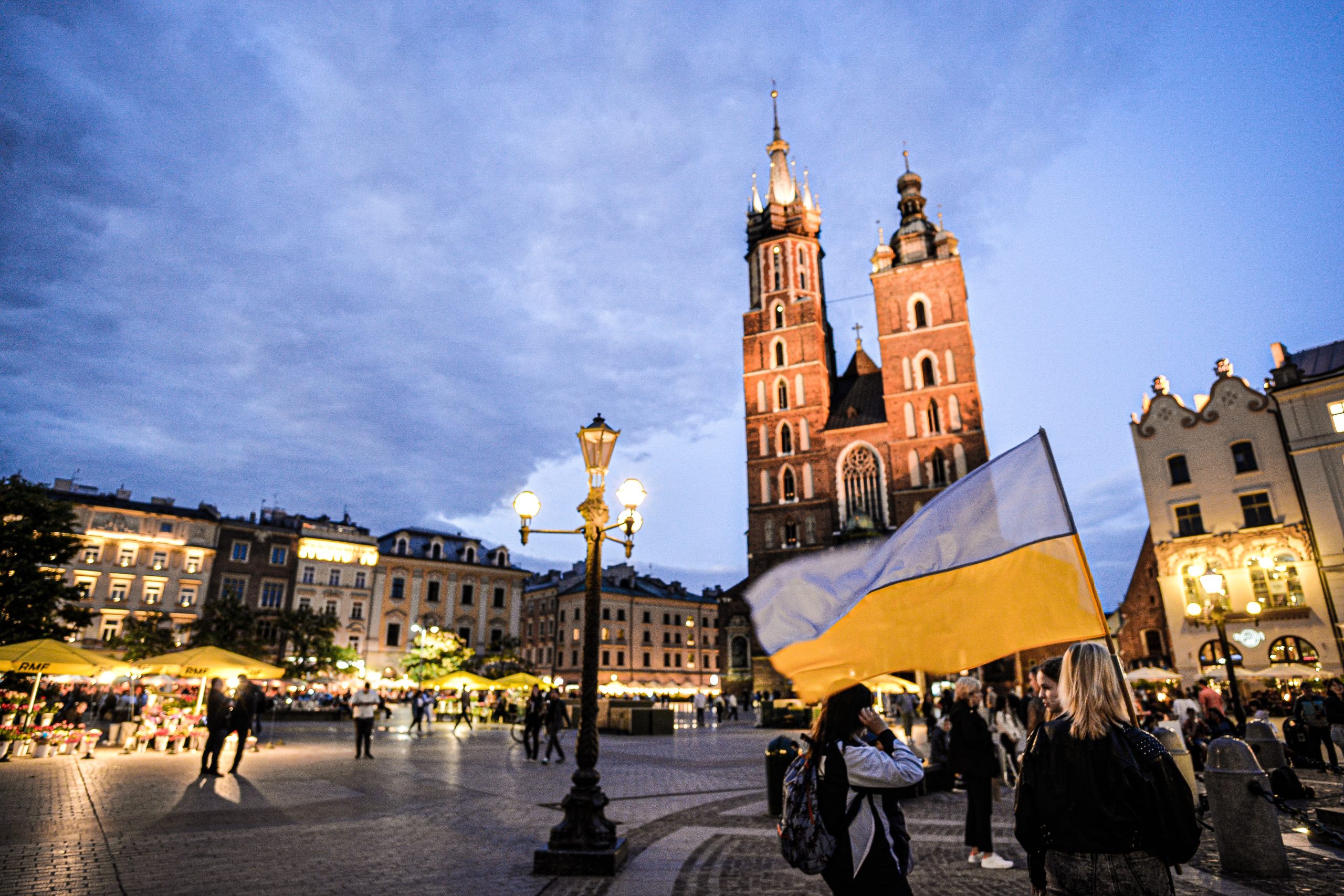Yesterday, we went out to the main bus station of our city for a weekly event called “Street Church” that we take part in. We’ve been going out for 5 years now, feeding the homeless and preaching the gospel in the city centre of Krakow every Sunday. Among the homeless that usually meet with us, I spotted a new lady. She was blonde and timid. She didn’t look like a typical homeless person, but she was very hungry for the sweet bread rolls we were distributing, so I figured she must be in some life crisis with no financial means for food. I decided to speak to her to encourage her, as she was too shy to take them on their own. I realised she was Ukrainian. She came to Poland 6 months ago as a result of war with her son and handicapped husband. They stayed in a centre for disabled refugees outside Krakow, but after some months she had to move out and her son stayed there with her husband. She told me only disabled people could live there and she was healthy, so they asked her to leave. I didn’t manage to find out the details, as there was still a language barrier. My ukrainian was not good enough… I think it may have something to do with government financial help for the refugees that only last 120 days. Once a refugee arrives in Poland, the government supports the helping institution for 120 first days making sure the refugee gets accomodation and meals. After this period, the refugees are on their own and need to be able to sustain themselves. This is why you can find many people interested in helping refugees, but they only offer help for as long as the government finances it. After the finances stop, the refugee must be out. The financial help continues though, for disabled refugees and children of disabled parents. Hence the husband and the son could stay in and Natalia (this was her name) is out, I suppose. I asked her how long she lived on the street. By that time, she was sobbing in my arms and said that it’s been seven days. She didn’t know where to go or what to do. I could sense her heart was shattered by the trauma of war and then, the difficult life of a refugee in a foreign country. I told her to call me the following day as I might be able to help her with accommodation. I didn’t know if it was true, as all our spaces are currently occupied, but I was planning to call other hostels to see if they were able to take her in. We agreed she would call me at 1 pm today, but she didn’t. I hope she found help somewhere else sooner than that. She was planning on going to one hostel in another town today to ask for a place, so I hope this is what happened. But another interesting thing happened – as I was talking to Natalia. Another couple of homeless Ukrainians came and introduced themselves. I also never saw them before in our street church. Some minutes later, Sergey – our long time homeless friend from Ukraine came to me to ask for prayer – he wanted to be finally free from alcohol. As I prayed, I saw him crying for the first time since I met him months ago. He told me he hadn’t cried in years. Usually smiling and playful, finally started to feel the bitter taste of sin. In between the conversations, Tatiana – a mother from Ukraine with whom I prayed some weeks before also came to greet me. That made me think.. Last year, when the refugee crisis started, I thought that this might lead to a homeless crisis as well. In the last 12 months we did see individual cases of Ukrainian refugees becoming homeless. But it seems like this problem might be growing as the time goes by..
Please, pray with us for work opportunities for Ukrainians in Poland and successful social integration for them.
Do not oppress a foreigner; you yourselves know how it feels to be foreigners, because you were foreigners in Egypt. Deuteronomy 10:19 And you are to love those who are foreigners, for you yourselves were foreigners in Egypt
Exodus 23:9

